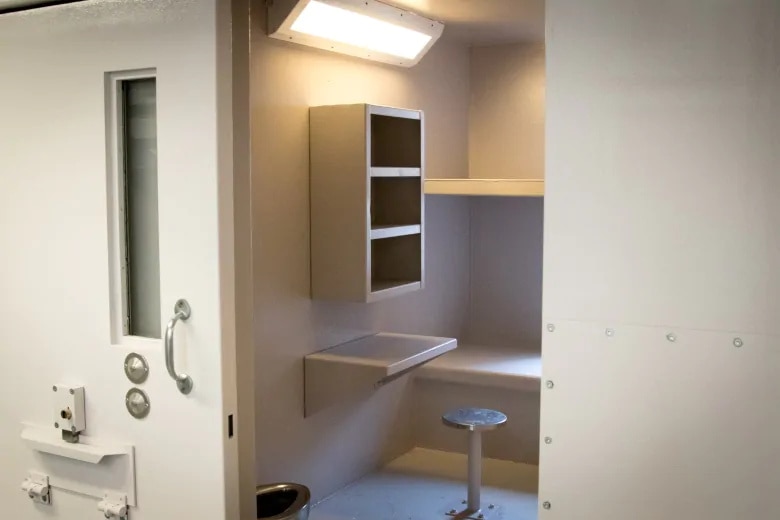
KJIPUKTUK (Halifax) – National Housing Day (Nov. 22) has come and gone, and where are the most vulnerable women? Locked up in cages because they are homeless.
Currently women in our community are silently suffering. These women are warehoused in crowded jails with no access to visitors, programming, supports or community resources.
Most have complex mental and physical health issues and histories of trauma and addiction. Many are there because they have no fixed address and the majority of them are Black or Indigenous.
In Nova Scotia, we imprison people who are presumed innocent at alarming rates. Black and Indigenous Peoples, specifically women, are over-represented in these figures, which increased by 192 per cent in a 10-year period. These are some of the consequences of a racist justice system, which the premier acknowledged, and the outcomes of historic and present-day systems of colonialism, sexism and prejudice.
When COVID-19 hit, Nova Scotia’s provincial prisoner population was reduced by 41 percent between February and April — more than any other province. This was due to the extraordinary efforts of people from the courts, corrections and community who came together to protect this highly at-risk population.
When people leave jail, they need housing, health care and income. Our community wasn’t equipped for these prompt releases, and non-profit organizations scrambled to quickly mobilize resources.
With support from the Affordable Housing Association of Nova Scotia, temporary hotel spaces and 24-7 staffing was made available through a collaboration between Coverdale, The Elizabeth Fry Society of Mainland Nova Scotia, and The John Howard Society of Nova Scotia. The United Way Halifax also stepped up to fund this work. Although highly successful, with few breaches of bail conditions, it was ultimately shut down when money ran out. The initiative provided services to 55 people and the women’s unit at the jail was down to just seven prisoners.
Now all of that work has been undone.
We are in a homelessness crisis. Of the 477 actively homeless people in Halifax, 241 are women and non-binary. This is a record for women experiencing homelessness here. Again, Black and Indigenous people are over-represented (59 per cent and 71 per cent respectively).
We stand in solidarity with shelter providers who are pleading with this province to respond immediately to the housing and homelessness crisis. There is a close relationship between homelessness and criminalization. People who do not have safe, secure, affordable shelter are more likely to interact with state systems. With shelters at capacity, the jail ends up housing vulnerable people by default.
As we enter a second wave of COVID-19, calls to “stay home,” maintain healthy habits and social-distance, are voiced by health experts. These directives assume that everyone has autonomy over their choices. They presume that our options are uniform. These orders do not reflect the realities of those experiencing homelessness or locked away in jail, where social distancing and adequate hygiene are impossible.
Because of a lack of housing, women are released to sit in 24-hour fast food restaurants, return to abusive homes and sleep outside. Others are seen as a public safety risk because of their homelessness and denied release.
Because of court backlogs due to COVID-19, it could be months before their matters are heard.
These women are the most neglected, most forgotten, most stigmatized and most marginalized in our communities. Even the federal definition of homelessness, that governs the provision of supports for homeless individuals, doesn’t recognize jail as a period of “homelessness,” thereby further limiting access to resources for this population.
Without resources for housing and community support, it’s no wonder that as we move into the second wave of the pandemic, jails are again filling up.
The only COVID-19 strategy to address overcrowding in jails is ankle monitoring, a practice that requires a fixed address. Some people with ankle monitors are living in emergency shelters. This is a tragic misuse of the shelter system. This “solution” will not address the root cause of criminalization and will not assist in the release and support of the most vulnerable women who do not meet the basic condition for release — an address.
Together, our organizations have offered countless solutions to this crisis and have been turned away and ignored at every turn. We have collectively submitted four proposals for supportive, transitional housing for this vulnerable population — housing that would keep women out of jails long-term — and been denied. We have cobbled together our resources to do whatever we can to minimize harm and respond. But the resources in our small organizations are dwindling fast.
We need community-based alternatives to remand. These women are currently imprisoned in provincial jails awaiting court dates without having been convicted of a crime.
It’s time to bring our most marginalized community members home and give them resources, respect and dignity.
Ashley Avery is executive director of Coverdale Courtwork Society. Emma Halpern is executive director and regional advocate — Atlantic, of the Elizabeth Fry Society of Mainland Nova Scotia.
See also: Urgent open letter re health, safety and human rights of people in prison during COVID-19 crisis
With a special thanks to our generous donors who make publication of the Nova Scotia Advocate possible.
Subscribe to the Nova Scotia Advocate weekly digest and never miss an article again. It’s free!



